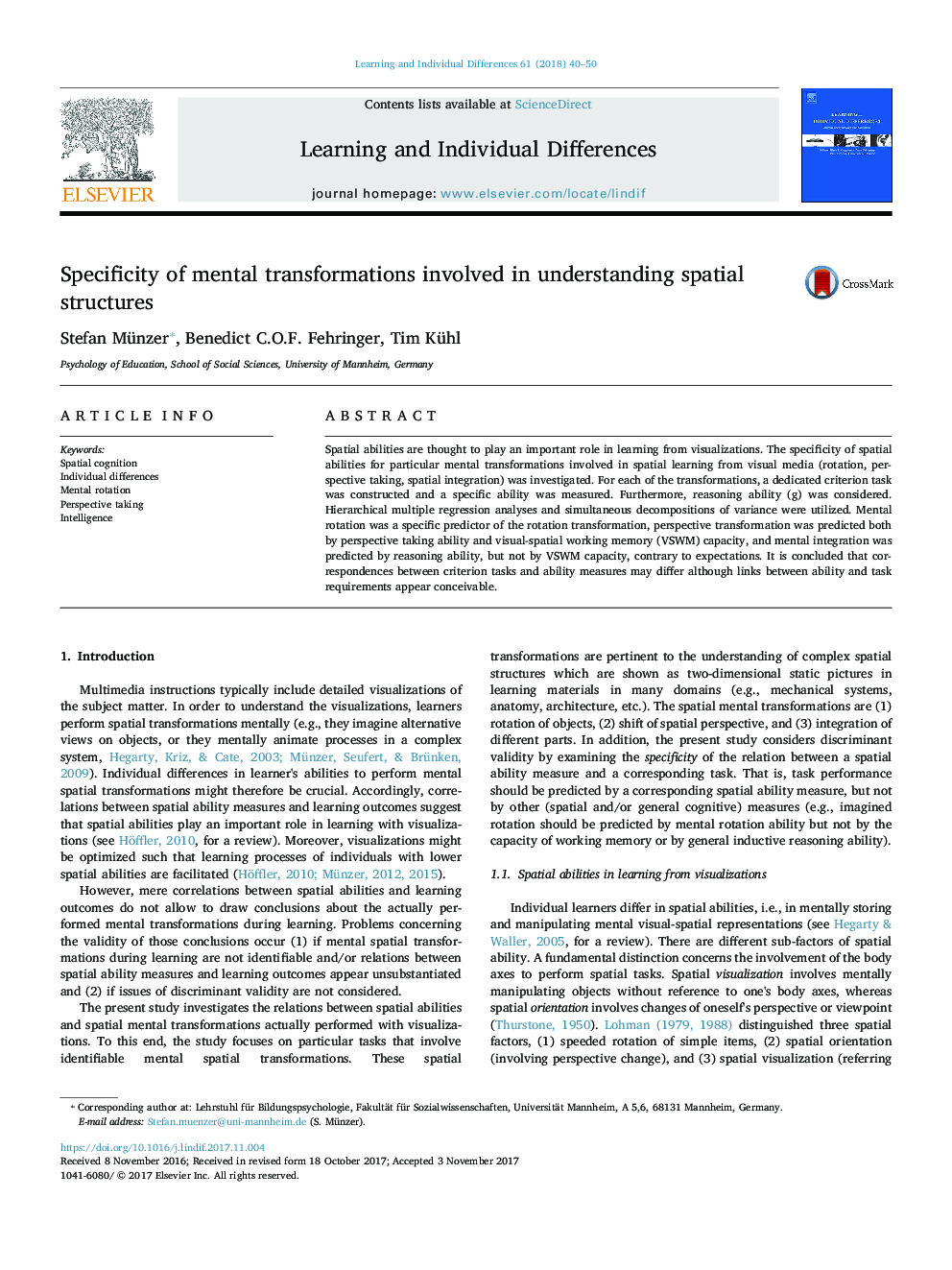| Article ID | Journal | Published Year | Pages | File Type |
|---|---|---|---|---|
| 6844500 | Learning and Individual Differences | 2018 | 11 Pages |
Abstract
Spatial abilities are thought to play an important role in learning from visualizations. The specificity of spatial abilities for particular mental transformations involved in spatial learning from visual media (rotation, perspective taking, spatial integration) was investigated. For each of the transformations, a dedicated criterion task was constructed and a specific ability was measured. Furthermore, reasoning ability (g) was considered. Hierarchical multiple regression analyses and simultaneous decompositions of variance were utilized. Mental rotation was a specific predictor of the rotation transformation, perspective transformation was predicted both by perspective taking ability and visual-spatial working memory (VSWM) capacity, and mental integration was predicted by reasoning ability, but not by VSWM capacity, contrary to expectations. It is concluded that correspondences between criterion tasks and ability measures may differ although links between ability and task requirements appear conceivable.
Related Topics
Social Sciences and Humanities
Psychology
Developmental and Educational Psychology
Authors
Stefan Münzer, Benedict C.O.F. Fehringer, Tim Kühl,
